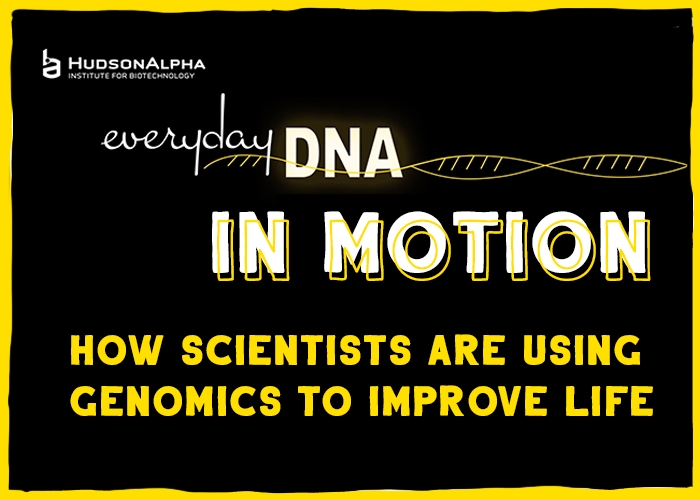By: Cathy Yarbrough, contributing science writer
A human baby is born perfectly sterile – free of bacteria and other germs. “But immediately after birth, thousands of microbial species begin to colonize the newborn’s gut and other tissues,” said Charles O. Elson III, speaking at the HudsonAlpha Institute of Biotechnology’s 2015 Immunogenomics conference. Microbial species, which include bacteria, are single-celled, microscopic organisms.
Eventually the child’s body will contain one hundred trillion microbial cells, 10 times more than his or her own human cells. “The collective genomes of these microbial cells – the microbiome — are 100-fold greater than the human genome,” added Elson, who holds the Basil I. Hirschowitz Chair in Gastroenterology at the University of Alabama at Birmingham (UAB).
These microbial inhabitants – microbiota — create a life-long symbiotic relationship with one’s body. “The microbiota has profound effects on our metabolism, nervous system, intestine, and immune system,” he said. Most of these tiny organisms reside in the digestive tract where they perform a wide range of essential functions from synthesizing vitamins to helping neighboring immune cells protect the human gut from potentially disease-causing bacterial invaders.
Normally immune cells learn to tolerate – not attack — their microbial neighbors, allowing the two groups of cells to co-exist in the gut. However, if the number or diversity of microbiota change, the immune cells may turn against their microscopic guests, triggering an inflammatory response that can lead to inflammatory bowel disease (IBD). Recent genetic studies indicate an immune system attack on microbiota also could play a role in triggering such non-gastrointestinal diseases as rheumatoid arthritis, Type 1 diabetes and asthma.
Microbiota’s influence on human health and disease is a new and rapidly expanding focus of biomedical research. “An explosion of activity has occurred in the past eight years,” said Elson, with research groups having pinpointed more than 160 genetic variations that increase an individual’s susceptibility to IBD. These genetic studies indicate that multiple biological pathways play a role in the initiation and progression of IBD, he said and added that many of the DNA alterations underlying IBD also could underlie such non-intestinal autoimmune disorders as multiple sclerosis and rheumatoid arthritis.
Also speaking at the conference session on the microbiome was Naseer Sangwan, who described recently published research about a potential effective treatment for infants who are allergic to cow’s milk. Sangwan, a postdoctoral research associate at Argonne National Laboratory in Chicago, was part of the team that identified significant differences in the gut microbiota of infants with and without an allergy to cow’s milk. “These differences indicate that the composition of microbiota influences the development of allergies,” he said.
Based on these findings, Sangwan and collaborators treated one group of infants allergic to cow’s milk with a probiotic formula designed to modulate their intestinal microbiota. The probiotic formula contained a form of the milk protein casein, supplemented with the probiotic bacterial species Lactobacillus rhamnosus GG. A standard formula was fed to a second group of babies allergic to cow’s milk. The probiotic formula treated infants developed tolerance to cow’s milk at a higher rate than the babies fed the non-probiotic formula. Genetic studies of the infants’ gut microbiota revealed that the newly tolerant babies had higher levels of bacteria that produce butyrate, the primary energy source for cells lining the colon.
Also speaking about the influence of gut microbiota on human health and disease were Akinyemi I. Ojesina and Matthew Stoll, both of the University of Alabama at Birmingham (UAB). Ojesina, an assistant professor at UAB, presented preliminary research on the impact of viral and bacterial infection in the pathogenesis of breast cancer. Stoll, a UAB pediatric rheumatologist, described his and his colleagues’ discovery that altered gut microbiota may predispose children to spondyloarthritis (SpA), an umbrella term for inflammatory diseases that involve both the joints and the sites at which ligaments and tendons attach to the bones. Stoll’s research provided the first evidence of an altered microbiota in children with SpA.
HudsonAlpha will host the 4th Immunogenomics conference Sept. 26-28, 2016.


